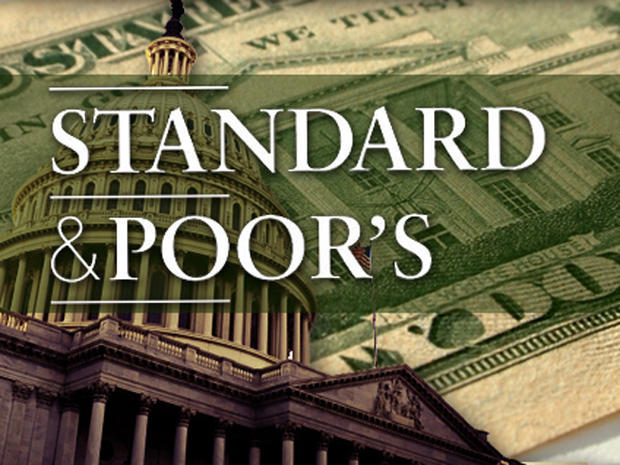Who's to blame for S&P's U.S. credit rating downgrade?
After all the politicking, Washington now turns to its favorite pastime, the blame game. Republicans blame Democrats. Democrats blame Republicans. No one honestly ever accepts the blame themselves.
But in the case of the downgrade of America's credit rating by Standard and Poor's, there is plenty of blame to go around. The blame is not fully about who racked up the charges on the nation's credit card, but more about the inability of our elected officials to deal with paying it off.
"The downgrade reflects our view that the effectiveness, stability, and predictability of American policymaking and political institutions have weakened at a time of ongoing fiscal and economic challenges," said S&P in their analysis. "We have changed our view of the difficulties in bridging the gulf between the political parties over fiscal policy, which makes us pessimistic about the capacity of Congress and the Administration to be able to leverage their agreement this week into a broader fiscal consolidation plan that stabilizes the government's debt dynamics any time soon."
Special section: America's debt battle
So who's to blame?
1. Congress -- The strategic decision to create its own crisis and make everything about political victories has sunk approval of Congress to a record low. In a system that is based on compromise and horse trading, operating where one sides gets everything or else doesn't work. You'll hear members decry the "sausage making" of legislation, but the debt crisis was a rare failure, where the final product was woefully inadequate given the magnitude of the crisis. And the sausage making is what drove the downgrade more than anything, with Congress proving its own inability to function for the greater good. Had the grand bargain been achieved, where each side gave a little to get a better deal for the American people, the downgrade would have been avoided.
2. The White House -- In a difficult position, the president was trying to act like a teacher trying to settle down an unruly class. But while the grand bargain was the best outcome, the failure to strike it showed the White House had lost control. Instead of getting tougher with the misbehaving students, the president tried to show that he did his best and already compromised a lot, as if trying to make his best case when the he and the whole class got called into the principal's office. A stricter hand could have forced the right deal, not just any deal.
Treasury Dept.: Downgrade flawed by $2-Trillion error
3. Interest Groups -- The school yard gang. These un-elected private money backed groups are called interest groups because they only have their own interest in mind. Because of the role of money in elections and politics, these groups are stronger than ever and have a disproportionate hold on Washington's policymakers. These groups push lawmakers further to the extremes and by their nature, oppose any compromise where the middle wins.
CBSNews.com special series: United States of Influence
4. The Supreme Court -- I bet you didn't see this coming. The Court's recent rulings on campaign finance reform have made a system full of holes even more porous. The court has removed restrictions on speech, unraveling the rules that were aimed to help voters and their representatives have a more honest relationship. The new rules allow big money outside interest groups have their say in numerous campaign ads that make members of Congress even more beholden to these groups who control the purse-strings and have nearly unlimited, and unregulated funding. The modern electoral system has born the dysfunctional government that we are witnessing today.
S&P statement on U.S. debt downgrade
Putting U.S. debt downgrade in perspectiveDems, GOP react to debt downgrade
Each of these groups is to blame and the White House and Congress have suffered considerably in this debacle. But the biggest loser is the American people.
In poll after poll, the country expressed wishes for both a balanced deal and its frustration with the process. But time and time again, certain factions in Washington ignored the greater will for political gain.
When leaders don't listen to the people, then the goals of Washington are simply proven to be out of sync with the wishes of the country. This seems to be what's happening now. The polarization of American politics has given a greater voice to those on the fringes of the system and made governing for the middle, and the majority, all that more difficult. When that happens, Americans who are out of work, struggling to pay the bills and now facing consequences of a lowered credit rating must look at Washington and wonder why things are so bad. The answer is pretty obvious.
From CBS MoneyWatch.com:
S&P Downgrade: Does it Matter?
Shock May Be Short Lived
Is the Sky Falling?

